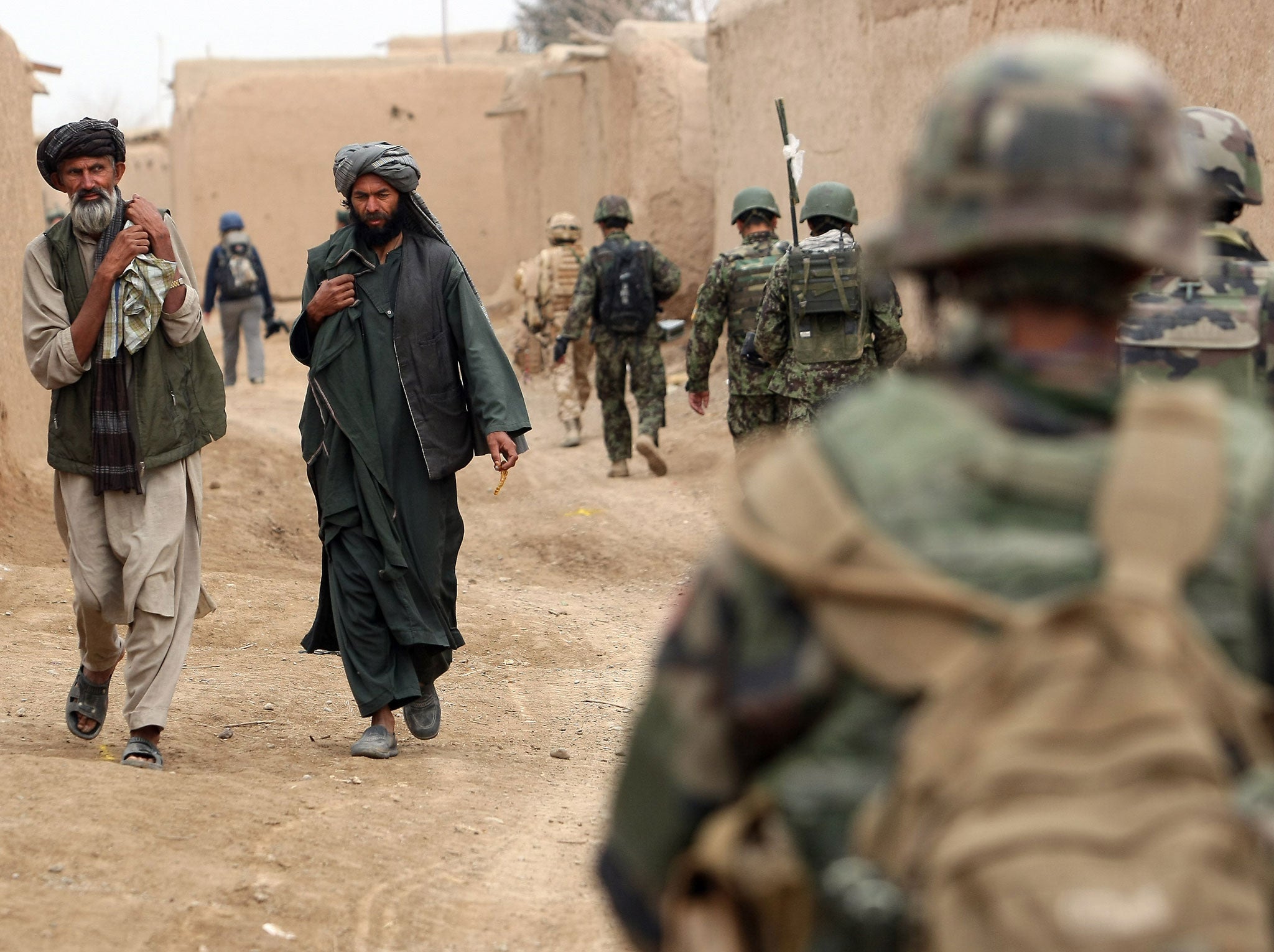The UK armed forces deserve our respect and admiration - but they don't deserve anonymity
The case of two soldiers who admitted the sexual and racial abuse of Afghan citizens reveals an unhelpful double standard in the military

The armed forces are heaped with praise, respect and gratitude, for they risk their lives daily in service of this country. A fallen soldier is honoured with a military funeral. His family is taken care of and his name is forever etched in history.
Up to this point, it all makes sense. But if that very soldier commits what can only be described asan arrogant and egotistical war crime, he is given the right to anonymity. This is one privilege he should not be granted.
In this case, they are known simply as Soldier X, a former private, and Soldier Y, a serving lance-corporal. Soldier X admitted trying to make an Afghan boy feel his crotch, telling him to “touch his special place”. Soldier Y admitted his involvement in a racist offence, when an Afghan man was made to hold up a sign reading “Silly Paki” while being photographed. Then there is their patrol commander, Soldier Z, who was cleared of failing to deal with the incidents.
We learned the dignity of an Afghan child is worth £1000, the amount X was fined for attempting his cheap thrill. For his pathetic racist conduct, Y was demoted in rank. When we wonder why British and American troops are not more welcome and respected abroad. It is stories like this that show us the bigger picture, and they cannot be ignored.
As a British Pakistani, I call two places home: London and Quetta, less than 80 miles from the Afghan border. I have met several Afghans who have watched their homes being destroyed and their people being killed. They sit listening to the drones overhead, hearing explosions in the distance. Despite this, of course they want to believe the troops are there for the good of their country, but they can’t, because they see and know so much more than we do.
Since British troops entered Afghanistan, it has been difficult to reason and to try and justify that yes, they are there to help. Of course we do not assume every soldier behaves in the same way. We hear about brave, honest soldiers, and along with the victims of this story, it is them we must feel sorry for; their reputations are tarnished by the ignorance of a minority. But this is the story of only three soldiers. How many more undocumented crimes have taken place?
I have every respect for the thousands of men and women representing the UK in the armed forces, and I appreciate serving abroad is a testing time, often with lifelong repercussions. But this cannot justify such vulgar behaviour. More so, Judge Advocate Large said the identity of the three men could not be revealed for their own safety. "Very especially in the light of recent events in London and the threat posed by lone wolves it seems to me that it would be wrong to lift the restrictions,” he said. But, as reported in this newspaper, this is not an unusual case, and soldiers’ identities have been protected in the past.
Why are they entitled to such a luxury, for a crime they committed on foreign soil, against innocent people they claimed to protect? We would not permit such behaviour in this country, so why do they think they can get away with it somewhere else? It is precisely this kind of behaviour that fuels hatred towards the West, and encourages extremism. And at a time of heightened sensitivity, it is this kind of special treatment that will cause further divisions in our society.
Then there is the somewhat embarrassing argument, excusing this behaviour as “banter”, a technique often used by soldiers to deal with the pressure. Judge Advocate Large said: “Many soldiers develop their own strategies for dealing with the pressure of life on operations. One of those strategies is banter, which has been a historic feature of military life and particularly life on operations.”
He said the lines between what is acceptable and what is not can sometimes become blurred, but he stressed the soldiers had been briefed about local culture and sensitivities, particularly those serving in Afghanistan, and so should have known how to behave. Correct me if I am mistaken, but surely there is no society in the world in which it would not be offensive to ask a boy to touch your private parts, or to call a dark-skinned person a Paki? In every country in the world such acts carry sexual and racist connotations. What exactly did they need to learn about that?
I am not disregarding the importance of a sense of humour to maintain mental strength in such difficult circumstances, but not at the price of the dignity and respect of fellow human beings. Whether the young Afghan boy will suffer long-lasting damage from this experience is not the argument. It is about the armed forces and the behaviour some of them deem acceptable. Do the few who misbehave think the uniform gives them a sense of entitlement? What they do not realise is that it does not bring entitlement, but responsibility, and when in uniform, everything they do will have a lasting impact. They should not be allowed to hide behind anonymity. This is not about Woolwich or protecting British soldiers, but about standing up and starting to take responsibility.
Join our commenting forum
Join thought-provoking conversations, follow other Independent readers and see their replies
Comments
Bookmark popover
Removed from bookmarks